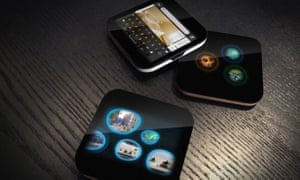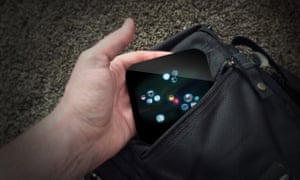the Finnish pocket computer that wants to take over the world
Three ambitious engineers from Finland are bidding to change personal computing with a new portable computer and operating system
“This is something I’ve been thinking about for 15 years, but back then the technology that would have allowed us to do this would have been so complex and expensive – particularly the hardware – that it would have been impossible,” says Lawson in a disorienting Belfast-Finnish accent.
Lawson has been working on Solu’s hardware and operating system for the last 12 months, with a team that includes the former Nordic director of TMF Group Javier Reyes and Pekka Nikander, who founded IT security consultancy Nixu.
The team was, says Lawson, attracted to the leaping ambition of the Solu project: to disrupt the personal computing establishment. “When the challenge is big enough, the smart people will get inspired.”
Lawson draws directly on experience building Holvi, a simple online banking and accountancy service. Like banking, personal computing is a market that’s been dominated by major players like Microsoft and Apple for decades. The mobile revolution has given us computing power on the move, but the desktop staple – particularly the user interface – has remained unchanged.
Lawson’s biggest gripe with today’s computers is “how badly they use the internet as part of their whole experience”.
“Yes we have email but we’re still fighting with backups, hard drive space and downloading and installing applications,” he says. “The whole internet is not a natural part of the computer itself. If you run out of local resources, you’re screwed.”
With Solu, the hardware is linked directly to a cloud service the team has built, with data centres located in Finland. The cloud gives the user ability to scale up, while the local device acts as a smart cache with a capacity of 32GB.
The obvious comparison is Google’s Chromebook, but Lawson points out that this competitor “is basically just a web browser” and the “desktop experience is extremely limited”. Solu, on the other hand, is designed to work offline. Any changes made offline are synced as soon as the device goes online.




Comments
Post a Comment